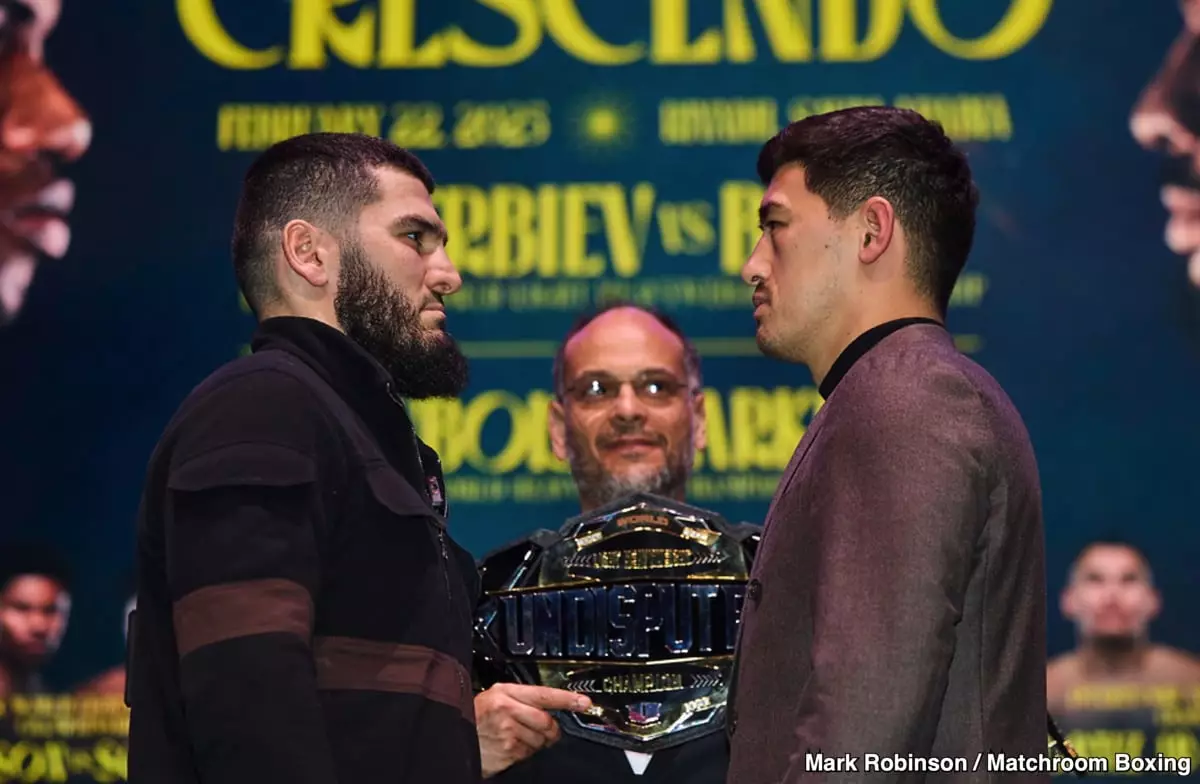Artur Beterbiev, a formidable powerhouse at 40, stands at the crossroads of age and opportunity. In boxing, where fleeting moments of peak performance dictate legacies, his current age is both an asset and a liability. While seasoned fighters often carry wisdom and resilience, the physical toll of a grueling career becomes increasingly evident with each passing year. For Beterbiev, this age factor seems to be a point of contention, especially as discussions around his anticipated trilogy with Dmitry Bivol heat up. The fighters’ careers are intertwined not just by their rivalry but by the stark reality of time slipping away—each delay potentially diminishing the window in which they operate at their highest.
The recent controversy over the fight’s location and date accentuates how strategic considerations are influencing decisions within the ring. Reports indicate plans to move the bout from Saudi Arabia back to Russia, stirring speculation about the fighters’ motivations. While behind-the-scenes negotiations often involve financial and promotional factors, the public’s desire for clarity underscores a deeper concern: How much longer can these warriors sustain their regality in the sport? For Beterbiev, his age magnifies urgency. Each withheld date isn’t just a scheduling issue—it’s a ticking clock, possibly a push towards the twilight of an storied career.
The Politics of Fight Scheduling: Manipulation or Prudence?
The apparent obfuscation around the fight date sparks a wider debate about strategic manipulation versus genuine logistical concerns. Fighters and promoters are no strangers to delaying tactics that favor one side or the other. Bivol’s reluctance to finalize a date might seem purely logistical, yet it raises questions about whether strategic patience is in his interest—or if he’s inadvertently crowding Beterbiev’s prime years. Critics could argue that such delays are a form of sport manipulation: by stretching out the scheduling, Bivol may be trying to outlast his opponent’s physical decline, effectively “age-shaming” Beterbiev into retirement before their showdown.
Beterbiev’s candid social media plea underscores the emotional toll of these delays. His question—”How old do I have to be for us to fight?”—is an indictment of the sport’s sometimes cruel timing. It’s not merely about winning or losing; it’s about fairness, respect, and recognizing that top-tier fighters don’t have an eternity at their peak. Given his physical condition and age, Beterbiev’s frustration is well-founded. If Bivol continues to delay, he risks losing the opportunity altogether, and perhaps, upending the legacy both men could etch into boxing history.
Legacy, Rivalry, and the Fight Fans Craving
At its core, this debate is about more than dates and locations. It’s about the narrative of two elite fighters—rivals whose confrontation could define an era. The Bivol-Beterbiev trilogy has the potential to be one of the most compelling stories in modern boxing, blending technical prowess, raw power, and emotional stakes. Fans eagerly await the clash, envisioning a battle that encapsulates the very spirit of competition.
Yet, as the clock winds down, many question whether this epic will materialize at all. Age is an unforgiving adversary, and with Beterbiev approaching his twilight, there’s a palpable urgency that cannot be ignored. Can Bivol, perhaps consciously or subconsciously, be waiting out Beterbiev’s last chapters? Is he hoping that time will diminish his opponent’s strength, or is he simply exercising caution in a sport that’s as much about patience as it is about power? These questions linger in the boxing fraternity, fueling debates on fairness, strategy, and legacy.
The truth is, fighters like Beterbiev and Bivol are locked in a complex dance where their legacy hinges not just on skill but on timing. Fans, pundits, and historians alike crave that final clash—a moment that might define generations. But if age and strategic delays continue to interfere, that moment risks slipping away forever. What remains clear is that the sport’s most riveting rivalries are often decided not only by fists but by the chess match of timing and willpower. Whether this trilogy will happen in the intended timeframe, or at all, will ultimately shape how we remember their careers—and the sport itself.

